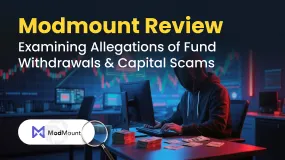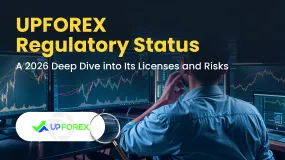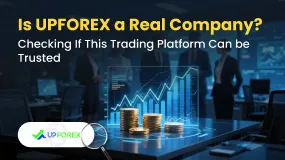Abstract:Good Friday, and we are wrapping up an eventful week with markets digesting the impact of accelerating inflation to a 40-year high in March after inflation rose 8.5% from the previous year. The U.S. Producer Price Index (PPI) rose 11.2% in March from a year earlier to another record high. Many economists expect the March data to mark the peak of inflation, even citing potential deceleration in core inflation and an easing of supply chain issues.

<WikiFX Malaysia Original: Editor – Fion>
Good Friday, and we are wrapping up an eventful week with markets digesting the impact of accelerating inflation to a 40-year high in March after inflation rose 8.5% from the previous year. The U.S. Producer Price Index (PPI) rose 11.2% in March from a year earlier to another record high. Many economists expect the March data to mark the peak of inflation, even citing potential deceleration in core inflation and an easing of supply chain issues.
On the other hand, Russia-Ukraine peace talks are still not seeing light at the end of the tunnel since the invasion 50 days ago. This conflict has severely affected the peace in the European countries, causing a drop in consumer confidence and a slowing down of economic growth. With the US Dollar gaining bullish momentum, and the weakening of the Euro dollar, it could be deduced that the currency pair EUR/USD could break its crucial level of support at 1.08000 in the near future.

The European Central Bank (ECB) has been gradually easing its stimulus program in recent days but has so far avoided announcing an official end date. The ECB is concerned that the Russia-Ukraine war and high energy prices could suddenly change the macro outlook.
The ECB lags far behind almost all others major central banks in raising interest rates as inflation soared. Many of the major countries' central banks began raising interest rates last year. In fact, within the past 2 days, central banks in New Zealand, Canada, and South Korea raised their borrowing costs respectively while ECB stays put.

Moreover, the ECB plans to end its bond-buying program, commonly known as quantitative easing, approximately in the third quarter of 2022, only to raise interest rates sometime later.
Conservative policymakers, including the central banks of Germany, the Netherlands, Austria, and Belgium, have made their cases for rate hikes, fearing that high inflation could last too long. Eurozone inflation has already reached a record of 7.5% annual rate, with more increases to come. Although the long-term inflation rate has decisively surpassed the expected target of 2% initially set by the ECB, wages have yet to be amended accordingly.
Even before Russia invaded Ukraine, the Eurozone inflation had already risen to 5.9% in February, making it likely for ECB President Lagarde to halt bond purchases and push rates higher during the year. Consequently, that could force weaker sovereigns to pay more to borrow, pushing up costs for businesses and households.

Meanwhile, off the economic calendar, with a wave of interest rate hikes around the world, the Bank of Korea pre-emptively raised interest rates by 25 basis points to 1.5% before the central bank governor took office. This is the first time the Bank of Korea‘s Monetary Policy Committee made a huge decision without a governor for the first time. This rate hike is the highest since August 2019 and it is expected that South Korea’s interest rate could arrive at 2% by the end of this year.
<WikiFX Malaysia Original: Editor – Fion>













